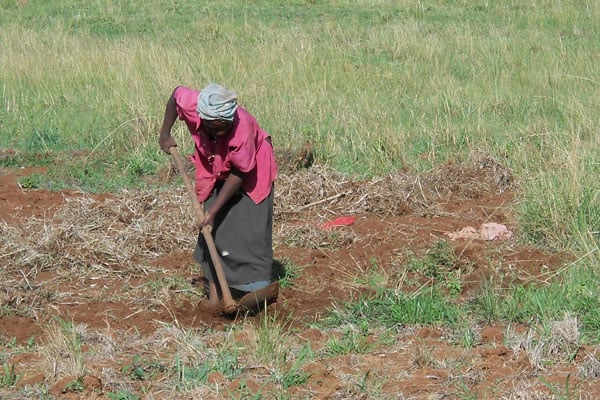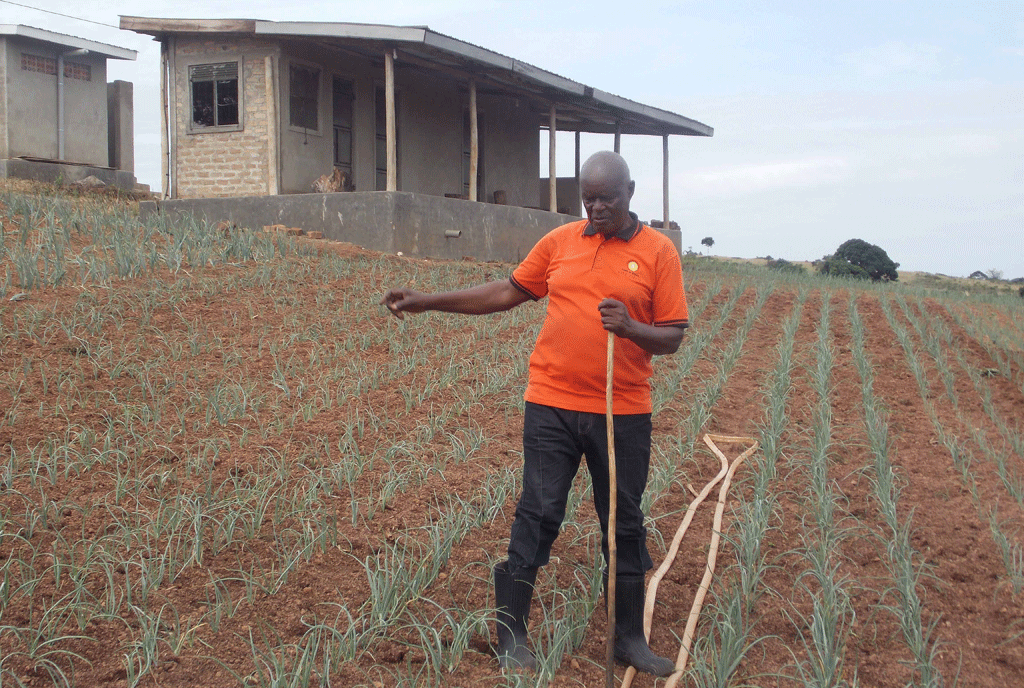Prime
What to do as the rains begin

A farmer doing seedbed preparation ahead of the rainy season. Photos/Michael J Ssali
What you need to know:
- Some crops such as maize do better when they are planted immediately when the rains begin yet some other crops such as beans are best planted after the rains have fallen for perhaps a week or two.
In Buganda the month of March is known as Mugula Nsigo. The name is made up of two words and they may be translated into English as “buyer of seeds”. This is the period when farmers looked for seeds to plant after a period of seedbed preparation. Before the arrival of the white man and his language, the weather patterns in Uganda did not differ so much from the way they are today.
Preparations for first rainy season
Mugula Nsigo came to be known as the month of March and it is the month when the first rainy season begins and when farmers plant crops.
We are in that month now when farmers across the country are getting seeds and preparing for the rainy season.
The big question now is how are farmers going about the preparations --- seedbed preparation, finding the planting materials, water harvesting, mitigating soil erosion, fertiliser selection, among other activities?
Prepare the garden
Before planting seeds, farmers must ensure that the ground where the crops are to be grown is ready for the activity. The condition of the soil matters very much. It should be loose, deep, and free of weeds and large clods. During this period of seedbed preparation the farmer makes the soil ready for easy infiltration of rainfall, soil aeration, and quick germination of seeds. The activities may involve clearing the bush and cultivating the ground with a hand hoe or oxen or a tractor.

Farmers examine rainwater harvested by laying a plastic sheet into a large hole.
Scout for quality seeds
Dr Andrew Kiggundu, a senior researcher at the National Agricultural Research Organisation (Naro), told Seeds of Gold, “Farmers should use this time to look for quality seeds to plant. They should go to well recognised shops and the seeds should be from regulated seed companies. They should also seek guidance from the shop attendants or the area agricultural officers on how to plant the seeds. Today there are seeds bred to be drought tolerant and there are others bred to be early maturing. We are not sure how long the rains will be and farmers ought to be cautious about the varieties they choose.”
He added that the farmers should ensure that they have done thorough seedbed preparation in the weeks before when the country received a bit of rain and when the ground was relatively soft.
Plan for soil erosions
John Mugera Owebbeeyi, a retired sub-county agriculture officer in Lwengo District, says this is the time for farmers to make sure that the expected heavy rains, as has been predicted by weather forecasters, should not take farmers by surprise.
“The farmers must make arrangements to protect their gardens against water soil erosion by digging trenches across their gardens proportional to the size of the slope. This is the best time to trap runoff rain water and to retain it in the ground.”
Mulching
He also advises coffee and banana farmers to practice mulching in order to protect the soil from being washed away by runoff rainwater. He further advises farmers to make a fence around their gardens by planting trees and shrubs all along the boundaries. “Heavy rains often come with strong winds resulting in the felling of banana trees, maize, cassava and coffee trees. A fence of trees and shrubs around the garden serves to mitigate that kind of destruction.” He also recommends farmers to plant crops such as maize in lines across the garden if they are farming on sloppy ground to further mitigate soil erosion by runoff rainwater.
How to select good seeds
He goes ahead to emphasize the importance of good seed selection. He says the biggest losses are due to improper seed selection and gives the example of farmers who plant the wrong coffee varieties.
“It takes up to four years in some cases for a coffee farmer to realise that he or she planted the wrong coffee variety. Yet throughout that period he may have spent a lot of money on inputs and hired labour,” says Mugera.
Joseph Kasekende, a farmer and an agricultural officer at Rakai Town Council, says the month of March should be the time when farmers not only purchase seeds and planting materials but also the period to decide what fertilisers and other inputs to use.
Mixed farming
“Every crop farmer should keep livestock as well in order to get organic manure in the homestead,” he says. “The March rains in most of the central region and the western region are usually short and the farmers should go for quick maturing and high yielding seed varieties.” He also says that farmers must at all times be conscious of the possibility of long droughts following short rains.
Harvest and save the rainwater
His advice is that farmers should find ways of saving rainwater around this time, such as digging large holes and fitting them with tarpaulin or large plastic sheets which can be used to trap large amounts of runoff water. Such simple water reservoirs can be relied upon for irrigation when the rains stop suddenly before the crops mature. The animals too can be watered during the dry period.

A green fence of shrubs and trees can mitigate rainstorm damage.
Advice to coffee farmers
Kasekende has special advice for coffee farmers. He says the holes where coffee is to be planted should have been dug about a month ago and covered up with soil well mixed with organic manure, such as cow dung or compost. He says it would be wrong to be digging holes this month and mixing the soil with manure such as cow dung and then to plant coffee. He says coffee seedlings planted in such a hurried manner tend to dry up as soon as drought sets in. He says some crops such as maize do better when they are planted immediately when the rains begin yet some other crops such as beans are best planted after the rains have fallen for perhaps a week or two.
Tips for selecting groundnut varieties
Dr Kalule Okello, chief groundnuts research officer at National Semi Arid Resources Research Institute (NaSARRI) based in Serere District, says that farmers in eastern and northern Uganda need not worry about the rains being short this season because normally the regions tend to have rain for a longer period this time of the year than other regions.
“So the farmers should go for any seed varieties of their choice from well recognised and regulated seed companies. It is also the time for farmers who cannot afford to buy seed to be cracking the groundnuts saved in their previous harvests and sorting them well. They should plant only well-developed groundnut grain to achieve good yields,” says Dr Kalule.
He said there are groundnuts that are bred to mature early while others take a bit longer.
The farmers are also advised to select groundnut varieties based on their intended market. Some groundnuts varieties are to be fried and sold to consumers in packets often to be eaten as accompaniment to coffee or tea, while other varieties are ground and made into a paste or sauce. He is aware that some agro-input dealers sell expired or fake products to farmers and he strongly advises all farmers purchasing seeds or fertilizers from input dealers to make sure they keep the receipts and the empty containers of the items they buy.
“The farmers have a right to sue the input dealers if the seeds or the fertilisers turn out to be substandard,” he says. “The receipts and empty containers will serve as evidence in the lawsuits against the quack input dealers. If a farmer plants seeds and fifty or eighty percent of the seeds don’t germinate it is a big loss to the farmer and in most cases it is the inputs trader to blame.”




